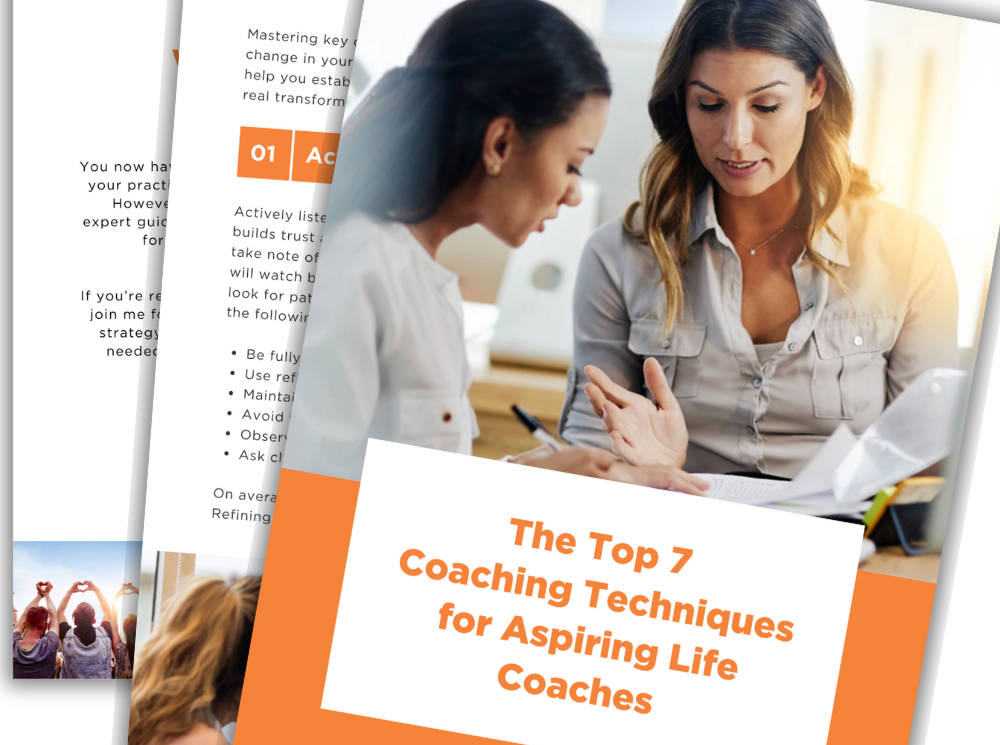Body Intelligence
Nov 21, 2024
Body Intelligence: Trusting Your Inner Wisdom for Transformational Coaching
As coaches, we often rely on cognitive skills to analyse, strategise and solve problems, both for ourselves and our clients. However, true growth and transformation happen when we learn to move beyond the headspace and tap into the wisdom that comes from our entire being. The body holds invaluable insights, and learning to trust this deeper wisdom is key to supporting our clients in their journeys. This approach also aligns with the ICF Core Competency of Embodies a Coaching Mindset and Maintains Presence, which both call for a deep connection to self and others.
The Power of the Body in Coaching
While our brains are excellent for processing information, the body can signal what the brain may miss. Our physical sensations often reflect deeper emotions, thoughts, and patterns that we may not be consciously aware of. By noticing tension, relaxation, or other body signals, we can tap into a deeper layer of insight that words and logic alone cannot provide. Sometimes, our minds and thoughts can be foggy. But our body’s responses are clear.

This understanding is rooted in Maintains Presence (ICF Competency 5). Maintaining presence requires a coach to stay fully conscious and in tune with not only the client’s verbal expressions, but also their non-verbal cues and shifts in energy. When we, as coaches, model this connection by tapping into our own body’s signals, we help clients learn to access their own inner wisdom.
For example, consider a client who is overwhelmed by a decision. Instead of solely discussing the pros and cons, guiding the client to notice how their body reacts to the options may reveal a deeper truth. A knot in the stomach or a sense of ease in the chest can be powerful indicators of what the body is saying about their emotional state.
Learning to Trust Inner Wisdom
Accessing this body intelligence requires a level of self-trust, both for coaches and clients. In coaching, we may find it easier to trust the rational mind, where decisions and actions can be neatly explained. However, trusting inner wisdom means recognising the body as an equal, if not greater, source of information.
This ties into the ICF Core Competency of Listens Actively (ICF Competency 6). Active listening goes beyond just hearing the words a client says. It involves being fully present and attuned to what is being communicated on multiple levels—cognitive, emotional, and physical. When we coach from a place of inner wisdom, we model this holistic listening approach, encouraging clients to explore and trust the messages coming from within their own bodies.
Practising self-trust in this way involves letting go of the need to control every aspect of the coaching conversation. It’s about leaning into intuition, noticing what feels right, and allowing the coaching process to flow in a more organic way. Clients, too, can learn this skill by exploring how to make decisions from a place of alignment with their entire being—not just from their heads.
Shifting from Thinking to Being
An essential part of moving from head to body space is helping clients shift from doing and thinking to being and feeling. Clients often come to coaching with a desire for solutions, expecting that working through their problems cognitively will provide the clarity they seek. However, real transformation often comes from slowing down, noticing, and allowing the answers to emerge from a place of stillness.

This is where Embodies a Coaching Mindset (ICF Competency 2) plays a crucial role. By embodying a mindset of openness and curiosity, we encourage our clients to do the same. Coaching is not just about asking the right questions or offering the right tools, but about being fully present in a way that allows deeper truths to emerge. When we model this way of being, we create a space where clients feel safe to explore the messages their body is sending them.
As coaches, we can support this shift by asking questions that direct attention inward. For example, rather than asking, “What do you think about that?” we can ask, “What sensations are you noticing in your body when you think about that?” This simple reframing invites clients to step into their body space and access wisdom that may not be immediately accessible through their mind alone.
Practical Ways to Support Clients
Moving from head to body space doesn’t have to be a complex process. Here are some practical strategies to incorporate into your coaching practice:
- Body Scanning: At the beginning of a session, invite your client to do a quick body scan. Ask them to notice any areas of tension or ease and explore what these sensations may be communicating.
- Breath Awareness: Encourage clients to pause and take a few deep breaths when they feel stuck in their thoughts. Breathwork can help them reconnect with their body and bring a sense of calm, making it easier to access inner wisdom.
- Movement-Based Reflection: Invite clients to move during the session—whether it’s standing, stretching, or even walking. Physical movement can unlock insights and shift their perspective, leading to a more embodied decision-making process.
- Somatic Questions: Incorporate questions that prompt clients to check in with their body, such as “Where do you feel that in your body?” or “What does your body want to tell you right now?”
Conclusion
By guiding our clients to move from head to body space, we help them access the full range of their inner wisdom. This deeper connection not only enhances their decision-making processes but also leads to more profound insights and sustainable change. As coaches, it’s our role to create a space where both cognitive and somatic wisdom can emerge, allowing for a richer, more holistic coaching experience. Through embodying a coaching mindset, maintaining presence, and listening actively to our own inner wisdom, we can model the path for our clients. In doing so, we support them in finding clarity not just from their minds but from their whole selves.
Sharing these mentoring moments with you,
Gaye
Stay connected with news and updates!
Join our mailing list to receive the latest news and updates from our team.
Don't worry, your information will not be shared.
Categories
All Categories

